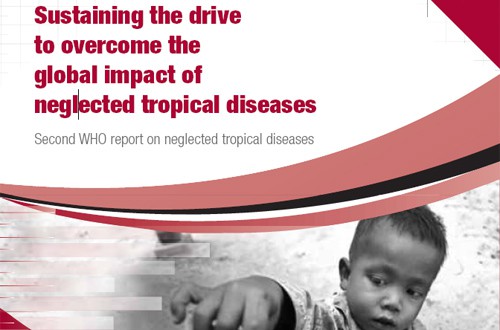
Increased access to medicines through donation programmes is helping to both eradicate and eliminate neglected tropical diseases across the globe, according to the World Health Organization (WHO).
A year on from a pact between 13 of the world’s largest pharma companies, the WHO and the Bill & Melinda Gates Foundation to boost efforts in in developing nations, the WHO said it is reporting “unprecedented progress against 17 neglected tropical diseases”, including two due to be eradicated worldwide.
These include guinea worm disease (dracunculiasis), which the report says will be eradicated by 2015. There only 521 cases of the disease from January 2012 to September 2012 – down on 1,006 for the same period in 2011 due mainly to improved public health efforts, such as treating drinking water.
The bacterial infection yaws is due to be eradicated by 2020 using a new treatment policy involving an oral dose of azithromycin instead of the previous standard of an injection of benzathina benzylpenicillin, which requires a trained healthcare professional to deliver.
As part of the plans agreed in 2012, Pfizer said it would extend its donation of azithromycin until 2020.
The WHO is also expecting big advancements in the elimination of neglected tropical diseases, which means the disease is contained in a restricted area and no longer spreads rather than being eradicated outright.
By 2020, the WHO anticipates leprosy, blinding trachoma, sleeping sickness (human African trypanosomiasis) and lymphatic filariasis to be eliminated worldwide, while rabies, chages disease, visceral leishmaniasis and schistosomiasis and onchocerciasis are all expected to achieve either regional or country elimination.
The treatment of these disease has been boosted by the use of preventative chemotherapy, which is defined by the report as the widespread delivery of safe, single-dose, quality-assured medicines, either alone or in combination, at regular intervals to treat selected diseases.
“Donation of medicines and funding through an alignment of international partners have helped fast-track actions and initiatives that are now having a measurable impact in affected countries with considerable scale-up of preventive chemotherapy interventions,” said the WHO.
One major area of concern remaining in the area is dengue fever, of which, as the fastest spreading vector-borne viral disease, there could still be an epidemic.
The WHO called for countries to implement sustainable preventative measures, which could be supported by Sanofi’s investigational vaccine for the disease if it makes it past phase III development.
Pharma increases NTD research efforts
Also published this week was a separate paper by the International Federation of Pharmaceutical Manufacturers & Associations (IFPMA), which reported that there were 132 pharma R&D projects targeting neglected tropical diseases during 2012 – a 40 per cent increase from 2011.
“We take a comprehensive approach to tacking neglected diseases,” says Eduardo Pisani, IFPMA director general.
“Donations of 14 billion treatments this decade address patients’ near-term needs while these 132 R&D programs will bring innovative vaccines and treatments to meet future needs and hopefully stop these dreaded diseases.”




